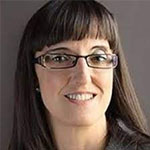Master´s Degree in Bilingual Education

We train teaching professionals
This program responds to the need to train qualified professionals in compulsory non-university education, who need to strengthen their language competence and adapt to new social needs and the demands of both public and private bilingual education centers.
This master's degree provides students with an updated training in bilingual education that also allows them to obtain the linguistic qualification required in some autonomous communities. The lessons are taught exclusively in English.
The study plan has been developed in response to the needs of teachers teaching through the medium of a foreign language. It examines how to improve their professional performance in bilingual and multi-lingual contexts and looks at how new technologies can applied to teaching via a foreign language. It also looks at current methodological trends for the teaching of multiple sub-linguistic competencies.
Official Degree:Master´s Degree in Bilingual Education
Center responsible:School of Language and Education
Branch of knowledge: Arts and Humanities
Openings available: - Online: 100
Total Credits:60 credits.
. Minimum of 12 ECTS credits and maximum of 60 ECTS credits per enrollment and academic period.
Academic year in which it was implemented: 2011-2012
Duration: 1 year
Type of Education: Online
Academic Regulations: General student’s regulations. Credit transfer and recognition. Regulation of student participation. Common procedures for carrying out the Final Research Project
University Services: [+info]
Why study the Master's Degree in Bilingual Education
Curriculum
It is an official Postgraduate program, R.D. 1393/2007 of October 29 (B.O.C.M. of October 30, 2007), recognized in the European Higher Education Area (Bologna Agreements), valid throughout the European Union.
The Master's Degree in Bilingual Education is an official postgraduate degree, recognized by ANECA through a favorable report on 07/29/2011.
The student must take 60 credits
First Semester 24 ECTS
- 4 ECTS | Psycholinguistics and Interlanguage
- 44 ECTS | Sociolinguistics and Pragmatics
- 44 ECTS | Communicative Approach and Task-Based Learning
- 44 ECTS | Communication Skills
- 44 ECTS | Research Methodologies
- 44 ECTS | Design and Programming of CLIL Courses
- 44 ECTS | Technology Applied to the Teaching of L2
Second Semester 36 ECTS
- 4 ECTS | Developing CLIL Materials
- 4 ECTS | Management of Bilingual Centers
- 6 ECTS | Elective 1
- 6 ECTS | Elective 2
- 6 ECTS | Internship
- 6 ECTS | Master's Final Research Project
Information on the types of Subjects
Professors
| Profesores Professors | Porcentaje de Doctores Percentage of PhD holders |
| 26 | 73% |
Profesores
Professors
Metodología docente eminentemente práctica. Todos los profesores tienen experiencia profesional acreditada en su área de docencia.
Eminently practical teaching methodology. All professors have proven professional experience in their teaching area.
 Stephen Jenkins
Director del Máster en Enseñanza Bilingüe
Director of Master's Degree in Bilingual Education
Stephen Jenkins
Director del Máster en Enseñanza Bilingüe
Director of Master's Degree in Bilingual Education
 María Eugenia Álava
Profesora
Professor
María Eugenia Álava
Profesora
Professor
 Zeina Alhmoud
Profesora
Professor
Zeina Alhmoud
Profesora
Professor
 Ángela Álvarez-Cofiño Martínez
Profesora
Professor
Ángela Álvarez-Cofiño Martínez
Profesora
Professor
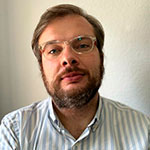 Bernhard Angele
Profesor
Professor
Bernhard Angele
Profesor
Professor
 Manuel Blázquez Merino
Profesor
Professor
Manuel Blázquez Merino
Profesor
Professor
 Jon Andoni Duñabeitia Landaburu
Profesor
Professor
Jon Andoni Duñabeitia Landaburu
Profesor
Professor
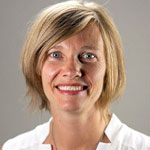 Alice Foucart
Profesora
Professor
Alice Foucart
Profesora
Professor
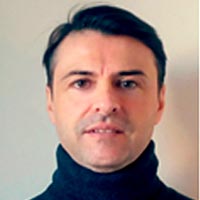 Miguel Gómez Jiménez
Profesor
Professor
Miguel Gómez Jiménez
Profesor
Professor
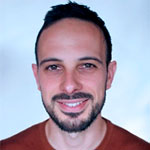 Jorge Gonzalez Alonso
Profesor
Professor
Jorge Gonzalez Alonso
Profesor
Professor
 Ángela Hernández Domingo
Profesora
Professor
Ángela Hernández Domingo
Profesora
Professor
 Ghufran KhirAllah
Profesora
Professor
Ghufran KhirAllah
Profesora
Professor
 Irini Mavrou
Profesora
Professor
Irini Mavrou
Profesora
Professor
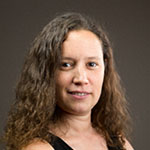 Margarita Planelles Almeida
Profesora
Professor
Margarita Planelles Almeida
Profesora
Professor
 María Teresa Rossignoli Palomeque
Profesora
Professor
María Teresa Rossignoli Palomeque
Profesora
Professor
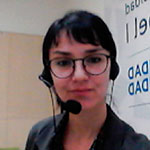 Alicia Sola Prado
Profesora
Professor
Alicia Sola Prado
Profesora
Professor
 Melisa Teves Romero
Profesora
Professor
Melisa Teves Romero
Profesora
Professor
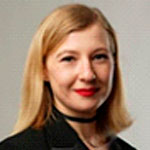 Elena Víktorovna Navrotskaya
Profesora
Professor
Elena Víktorovna Navrotskaya
Profesora
Professor
More Academic Information
Skills
Basic Skills- Possess and understand knowledge that provides the foundation or opportunity to be original in the development and/or application of ideas, often in a research context.
- That students know how to apply the knowledge acquired and their ability to solve problems in new or little-known environments within broader (or multidisciplinary) contexts related to their area of study.
- That students are able to integrate knowledge and face the complexity of formulating judgments based on information that, being incomplete or limited, includes reflections on the social and ethical responsibilities linked to the application of their knowledge and judgments.
- That students know how to communicate their conclusions, as well as the knowledge and ultimate reasons that support them, to specialized and non-specialized audiences in a clear and unambiguous way.
- That students possess the learning skills that allow them to continue studying in a way that will be largely self-directed or autonomous.
- GC1 Know, and know how to apply, the theories, linguistic models and methodologies of FL teaching in a class.
- GC2 Know the specific problems of FL teaching, both linguistic and cultural in a bilingual teaching environment.
- GC3 Apply the knowledge acquired in terms of making appropriate decisions in relation to the different factors involved in the processes of learning and teaching FL.
- GC4 Be able to carry out a critical analysis, evaluation and summary of new and complex ideas that allow autonomy in education and continuous updating of knowledge in the field of FL teaching.
- GC5 Be able to transmit social and cultural values in accordance with multilingual and multicultural current affairs.
- GC6 Know how to communicate with colleagues from the academic community and with society in general about their areas of knowledge in the field of bilingual education.
- GC7 Acquire basic theoretical knowledge aimed at establishing an informed teaching practice in the field of bilingual education.
- GC8 Know the legislation and regulations regarding the management and organization of bilingual centers.
- GC9 Analyze the psychological processes and the factors that intervene in the learning of a FL.
- GC10 Know and apply basic methodologies and techniques of educational research in the field of bilingual education.
- SC1 Design integrated curricula within their area of knowledge along with linguistic content to develop English/Spanish bilingual teaching programs.
- SC2 Create and adapt didactic materials for bilingual English/Spanish teaching, graduating the linguistic level and with sensitivity to the different learning rhythms, adapting the authentic material and turning it into didactic material.
- SC3 Know the necessary planning and evaluation instruments in the teaching/learning of English/Spanish.
- SC4 Develop and apply teaching methodologies adapted to the diversity of students in a bilingual English/Spanish environment.
- SC5 Assess both linguistic and sociocultural content in bilingual English/Spanish teaching.
- SC6 Incorporate new strategies, teaching materials and information technologies to the activities in the English/Spanish bilingual classroom.
- SC7 Incorporate the knowledge acquired in the master's degree in the development of planning, defense and implementation work in the field of Bilingual Education.
- SC8 Be able to use specialized terminology in English and Spanish in the field of second language acquisition.
- SC9 Be able to assess, select and use literary texts suitable for the development of linguistic competence and the approximation to the socio-cultural context of FL (Spanish/English).
- SC10 Be able to communicate fluently at C1 level of the CEFR.
- SC11 Be able to apply different strategies for teaching communication skills (interaction and oral and written production and reception) according to the characteristics of FL learners.
- SC12 Know the different variables of the FL teaching/learning process from the perspective of the student and their communicative needs; of the process itself; of its continuous and certifying evaluation.
- SC13 Know, and know how to apply, the advantages of the communicative approach and task-based learning for linguistic interaction in English and Spanish.
- SC14 Know the teaching/learning methodology based on Content and Language Integrated Learning (CLIL) and design and develop didactic activities based on said methodology.
- SC15 Know the curricular elements, the methodology and the objectives of the area of Social Sciences.
- SC16 Be able to adapt the contents to the diversity of the students for the area of Social Sciences, Geography and History.
- SC17 Be able to use the most appropriate teaching techniques for the area of Social Sciences, Geography and History.
- SC18 Know the curricular elements, the methodology and the objectives of the area of Natural and Social Sciences in a bilingual environment.
- SC19 Be able to adapt the contents to the diversity of the students for the area of Natural and Social Sciences.
- SC20 Be able to use the most appropriate teaching techniques for the area of Natural and Social Sciences.
- SC21 Know the curricular elements, the methodology and the objectives of the area of Artistic Education in a bilingual environment.
- SC22 Be able to adapt the contents to the diversity of the students for the area of Artistic Education.
- SC23 Be able to use the most appropriate teaching techniques for the area of Artistic Education.
- SC24 Know the curricular elements, the methodology and the objectives of the Technology area in a bilingual environment.
- SC25 Be able to adapt the contents to the diversity of the students for the Technology area.
- SC26 Be able to use the most appropriate teaching techniques for the Technology area.
- SC27 Know the curricular elements, the methodology and the objectives of the area of Natural Sciences (Biology, Geology, Physics and Chemistry) in a bilingual environment.
- SC28 Be able to adapt the contents to the diversity of Natural Sciences students (Biology, Geology, Physics and Chemistry).
- SC29 Be able to use the most appropriate teaching techniques for the area of Natural Sciences (Biology, Geology, Physics and Chemistry).
- SC30 Know the curricular elements, the methodology and the objectives of the area of Literature and culture in the English language in a bilingual environment.
- SC31 Be able to adapt the contents to the diversity of students in the area of Literature and culture in the English language.
- SC32 Be able to use the most appropriate didactic techniques for the area of Literature and culture in the English language.
- SC33 Know and analyze the organization of Bilingual Education centers and the diversity of actions that comprise their operation.
- SC34 Know quality educational management models and their application in schools.
- SC35 Know and analyze the current educational legislation regarding bilingual and multilingual education.
- SC36 Show abilities to investigate different aspects of teaching in bilingual environments.
- SC37 Prepare, use and interpret the basic and most used educational indicators to describe the situation of educational institutions.
- SC38 Become familiar with the design, development and evaluation of educational research on the teaching and learning of foreign languages/second languages.
Online Studies
MethodologyCompatibility with professional and personal life
The methodology of the Master's Degree in Bilingual Education allows students to receive online teaching late in the afternoon, where and how they want, with the only requirement of Internet access and availability of audio equipment (headphones and microphone) and of video (webcam).
AF 1. Teaching sessions
AF1.1 Online teaching sessions, via Internet, through the Nebrija Virtual Campus:
The subjects in which studying in the Virtual Campus has more importance have a prepared EDUCATIONAL ITINERARY, in which the units of the curriculum are described. The structure of the Itinerary is hypertextual, since it has content Blocks, divided into Units. In each of these units, a complete lesson is provided; other related topics are referenced, hyperlinks are used to explain or present; complementary information on concepts, definitions, bibliography is added through sales and connections with the documentation center of the subject. The professor can also teach a lecture using the VIDEOCONFERENCE system.
AF2. Individual and group learning activities outside of the classroom
The type of activities that the Master's degree students carry out outside the teaching sessions are varied, complementary and related to each other, and connected to the partial and gradual obtaining of competences. As an example, we point out some educational activities that will be carried out in all the subjects of the Master's degree:
- Search, selection, organization and ranking of information in different sources.
- Analysis of qualitative and quantitative data from different backgrounds (grammatical, sociolinguistic, errors, etc.) of design proposals, exercises, teaching activities, short and specific research projects.
- Design of proposals, exercises, teaching activities, short and specific research projects.
- Resolution of practical cases regarding different aspects of the teaching process for L2.
- Development of outlines, concept maps, glossaries, didactic sequences, evaluation instruments.
- Preparation of Reports at the end of the work carried out, of reviews, of conceptual and practical questionnaires on subjects studied, that are useful for the preparation of exams.
AF3. Tutoring sessions
The tutoring sessions are the responsibility of the professors of the subjects, the coordinator and the director of the Master's Degree in Bilingual Education. Group and personal tutoring sessions are carried out in order to achieve a general climate of cooperation and mutual respect among the students of the group; to promote cooperation between professors of the Master's degree in a vertical and horizontal coordination; to guide students, personally and professionally, making them aware of their vocational possibilities to achieve the proposed goals.
AF4. Complementary educational actions
Seminars, specialized congresses and conferences on topics related to the subjects of the area of knowledge.
AF5. Professional internship activities
The students carry out professional internships of a duration equivalent to 6 ECTS credits during the academic year of the Program, in primary and secondary bilingual schools with which the university has agreements. Students carry out the tasks that are assigned by the tutor responsible for their follow-up in the institution where the internships are carried out. These educational activities are supervised by the coordinator of the Master's degree, who is responsible for verifying that the student completes his Internship Report and submits the corresponding certificate from the external tutor, with a detailed report of the competences that were exercised and achieved.
Practical activities are always done in person, in the institution in which they are carried out. There is only one exception in the case of practical activities in ICT environments. Some students of the Master's degree can carry out their internship in specialized portals, as well as in digital platforms of publishers that support the pedagogical counseling of the publishing house. In that case, all the practical activities are carried out online and the periodic tutoring sessions, with the person in charge of monitoring this matter, can be face-to-face in the university, or virtually through email communication, videoconferencing or Skype, when the portal's headquarters are in another country.
AF6. Preparation, presentation and defense of the Master's Degree Final Research Project
Preparation of an academic paper, of applied research, which can be framed in any of the topics pertaining to the Master's degree subjects.
AF7. Evaluation Activities
As it is characteristic of an active, constructive and cooperative learning and teaching methodology, the evaluation activities are varied. The Master's degree students can be evaluated for various tasks, among which we can highlight the following:
- Participation in lectures, based on previous reading of the bibliography and discussion topics.
- Participation in individual and group tutorials.
- Participation in the Virtual Campus Forums on the proposed topics.
- Performing work in groups.
- Carrying out a conceptual exam to verify the assimilation of the new concepts contributed by the units of the subject.
- Review of scientific journals specializing in applied linguistics and foreign language acquisition theories.
- Completion of applied assignments that are related to the contents of the subject
- Design of programs taking into account the analysis of needs according to student characteristics, expectations and learning contexts.
- Design of teaching materials in conventional media and ICTs
- Preparation of Reports, with all academic requirements, following the guidelines provided.
- Preparation and presentation of expository, oral and written academic papers, following the guidelines of the macrostructure, style, Harvard citation standards and all the requirements of the channel and support used.
- Portfolio or professional folder with record of critical reflections, assignments, didactic designs and self-assessment.
The teaching of the subjects and the distribution of the student's work time (virtual, in-person and online) will be distributed as follows throughout the academic year.
1st SEMESTER: FROM OCTOBER TO FEBRUARY
- October: start of the course.
Orientation Session and Presentation of the Master’s Degree. - From October to February.
- Subjects covered:
- Module I: Fundamentals of bilingual education (12 ECTS credits).
- Module II: Instrumental Language. Communication Competences I and II (8 ECTS credits of 12).
- Module III: CLIL/AICLE. Design and programming of CLIL courses (4 ECTS credits of 8).
- Virtual and online work per week:
- Monday: sending of teaching material.
- Tuesday, Wednesday and Thursday: 2-hour virtual session.
- Wednesday, Thursday and Friday: sending of exercises done by the student.
- Subjects covered:
- February:
- Subjects covered:
- Ordinary exam period.
- Language immersion period in Nebrija:
From Wednesday to Saturday: language workshops and immersion.
- Subjects covered:
2nd SEMESTER: FROM MARCH TO JULY
- From February to June::
- Subjects covered:
- Module II: Instrumental Language Communication Competences III (4 ECTS credits of 12).
- Module III: CLIL/AICLE Development of CLIL materials (4 ECTS credits of 8).
- Module V: Elective subjects (12 ECTS credits).
- Ordinary exam period.
- Class attendance period.
- Virtual and online work per week:
- Monday: sending of teaching material.
- Tuesday, Wednesday and Thursday: 2-hour virtual session.
- Wednesday, Thursday and Friday: sending of exercises done by the student.
- Subjects covered:
- June::
- Subjects covered:
- Ordinary exam period.
- Language immersion period in Nebrija:
- From Wednesday to Saturday: language workshops and immersion.
- Subjects covered:
EXTRAORDINARY EXAM SESSION
- 1st and 2nd semester: last week of June - first week of July.
STAY ABROAD PERIOD
- Subjects covered: Module IV: Stay abroad (6 ECTS credits).
- Two-week course to be taken in July or August.
PRACTICUM PERIOD AND FINAL RESEARCH PROJECT
- Subjects covered: Module VI: Practicum and final research project (12 ECTS credits).
- 150 hours of internships in bilingual centers during the academic year or throughout the following year
- Final research project for the master's degree with several calls for presentation throughout the following academic year.
Although the evaluation system may vary depending on the particular characteristics of each subject, in general, the evaluation system is structured around the following elements:
- Participation in online sessions.
- Participation in forums and other activities programmed through the virtual campus.
- Participation in individual and group tutoring sessions.
- Follow-up tests by teaching unit.
- Practical tests or evaluation work by module.
- Final in-person test or project (not in-person).
- Carrying out work in groups.
- Taking a conceptual exam to verify the assimilation of the new concepts contributed by the subjects.
- Review of scientific journals specialized in applied linguistics and theories of foreign language acquisition.
- Completion of applied assignments that are related to the contents of the subject
- Design of programs taking into account the analysis of needs according to student characteristics, expectations and learning contexts.
- Design of teaching materials in conventional media and ICTs
- Preparation of Reports, with all academic requirements, following the guidelines provided.
- Preparation and presentation of expository, oral and written academic papers, following the guidelines of the macrostructure, style, Harvard citation standards and all the requirements of the channel and support used.
- Portfolio or professional folder with record of critical reflections, assignments, didactic designs and self-assessment.
- Taking a conceptual exam to verify the assimilation of the new concepts contributed by the subjects.
The final exams of each subject can consist of an in-person exam, as well as the presentation of a project or a didactic unit.
In the final grade of the subject, the grade of said final exam is weighted with the rest of the evaluation elements, with varying weighting percentages for the different concepts, depending on the specific contents of the topic and subject. The specific weighting percentages in each subject appear in the documentation given to the student at the beginning of the course.
All grades will be accessible via the Internet, in the student's private area.
Evaluation Examples:
Subject: Didactics of Natural Sciences (Biology and Geology and Physics and Chemistry).
Evaluation system: Participation in work groups and discussions 15%. Directed activities (critical reading of texts, evaluation of materials and teaching resources) 25%. Design of Didactic Unit 60%.
Subject: English Literature and Culture.
Evaluation system: Participation in work groups and discussions 15%. Directed activities (critical reading of texts, reviews) 15%. Conceptual exam 70%.
Evaluation system for the Final Research Project
The reading and defense of the Master's degree Final Research Project can only be done once the rest of the subjects of the Curriculum are passed.
The final grade of the project will be established by weighing the grade given by the Tribunal (50%) and the grade of the Project Tutor (50%).
Admissions
Admission requirements
As established in article 16 of RD 1393/2007, modified by RD 861/2010, students who meet any of the following conditions may access these studies:
- Have an official Spanish university degree, or another degree issued by an institution of higher education of the European Higher Education Area that grants access to Master's studies in the country issuing that degree.
- Graduates of educational systems outside the European Higher Education Area may access without the need for the homologation of their degrees, after verification by the University that they accredit a level of training equivalent to the corresponding official Spanish university degrees, and that they grants access, in the country issuing their degree, to postgraduate education.
- The access by this means will not imply, in any case, the homologation of interested party's previous degree, nor its recognition for other purposes than that of taking the Master's studies. In cases where the homologation of any degree, diploma or study obtained abroad for access to the University is required, Antonio de Nebrija University may conditionally admit students who accredit having submitted the corresponding application for its homologation while the procedure is resolved.
- In the case of students with special educational needs derived from disability, the need for possible curricular adaptations, itineraries or alternative studies will be assessed.
Form of submission of the necessary documentation for admission.
In general, the admission documentation will be submitted to the Admissions Department.
The student must provide the originals or certified copies of the documentation submitted within a period established by the University in order to formalize their enrollment. Any inaccuracy, falseness or omission of the data, statement or document provided by the student in the admission period will imply the impossibility of him/her continuing to exercise the right from the moment the University has proof of these facts, proceeding to the cancellation of the application for admission and the place that was awarded, without prejudice to any criminal, civil or administrative responsibilities that may arise.
In order to access the official university master's degrees, it is necessary to submit the following documentation:
- Completed Admission Application.
- ID document (D.N.I.) or valid passport.
- 1 passport-size photograph.
- Academic Record with the grades of the studies that grant access to the Master's degree.
- Certified photocopy of the degree of the official Spanish university or receipt thereof.
Foreign students:
- Certified photocopy of the official degree issued by a foreign higher education institution belonging to the European Higher Education Area (EHEA) that grants access to official master's education in the issuing country.
- Certified photocopy of the official degree issued in a foreign education system not belonging to the EHEA. In this case, access will be conditioned to the verification that the studies completed correspond to a level of training equivalent to that of the official Spanish university degrees, and that they qualify to access official master's degrees in the issuing country. This procedure does not imply, in any case, the homologation of the previous degree, nor its recognition for any purpose other than to access the master's degree studies.
- Only in the case that it is necessary, the foreign student will be asked for a letter issued by the University in which he/she has completed the level that grants access to the Master's studies in the country issuing the degree.
In the event that the studies used to access the pre-registration of the Master's Degree are taken in an institution of Foreign Higher Education, both the degree and the academic record (grades) must be official and issued by the competent authorities, in agreement with the legal system of the country of origin.
If the number of applicants exceeds the number of places offered, the student's academic record (average grade) will be taken as admission criteria.
Therefore, all those interested in accessing the studies of the Master's Degree in Bilingual Education must submit, without exception, their academic record, as it will be the average grade that decides their admission to the Master's degree, in the event that the number of applications exceed the number of places offered.
Once the places are full, in the case of having more people interested in accessing the degree, they will remain on the waiting list in the event of possible open spots that may arise before the beginning of the course, applying the admission and selection criteria detailed in point 4 for the rest of applicants.
In addition to the evaluation of the academic merits provided by the candidate (40%), students must take the following tests that are part of the admission process.
- Foreign language level test (40%)
In order to know the students' real level of knowledge of the foreign language, the Institute of Modern Languages performs a language positioning test. The level tests consist of a written exam with multiple-choice questions, oral and written comprehension, and use of the language. They are taken both in-person and online (20%).
It will not be necessary for the candidate to take the language positioning test if he/she submits certification that proves knowledge of a foreign language (English) with B2 level of the CEFR. The accreditation of the level will be validated through the official diplomas admitted in the certificates table of ACLES.
All candidates will also conduct an interview in English with the program director/coordinator (20%). - Personal interview (20%)
Conducted by the person in charge of the Academic Program or by advisors of the University, this interview is oriented to verify the suitability and profile of the candidate in accordance with the degree. This means determining if the candidate has sufficient motivation, training and knowledge, Competences, aptitudes, communication Competences, extracurricular activities and future interests necessary to be admitted as a student in the postgraduate courses of Nebrija University.
A Preparation Course will be offered on the essential basic concepts and Competences (indicated below), to guarantee the success of those admitted in the different subjects of the Educational Period, which correspond to the 60 ECTS credits of the Master's Degree in Bilingual Education. The preparation course consists of two parts:
- Linguistics applied to language teaching: Basic contents of Psycholinguistics, Sociolinguistics and Pragmatics.
- Teaching English as a foreign language:
- Didactic reflection on vocabulary and grammar
- Initiation to the CLIL methodology
Employability
Career Opportunities
The Master's Degree in Bilingual Education is a response to the growing demand for competent bilingual teachers in the context of ongoing globalisation and the needs of education to reflect the challenges of communication that the twentieth first century presents.
It is essential to strengthen the students' communicative competence in English to nurture their academic, cultural and economic dynamics, and to enhance their opportunities for employment, mobility and personal growth. Likewise, the implementation of bilingual programs throughout Spain and increasingly across the globe, in which second languages become the vehicle for instruction and communication, has made it essential to have teachers who have developed the appropriate linguistic and methodological preparation.
There are numerous centers interested in hiring staff with the necessary Competences for primary and secondary education, and with the communication and teaching Competences necessary to teach in the bilingual modality.
Internships
Collaborating institutions Procedure for carrying out external internships Management process for external internships and professional guidanceActivities in Bilingual Education
Visit all the Activities of the School of Language and Education
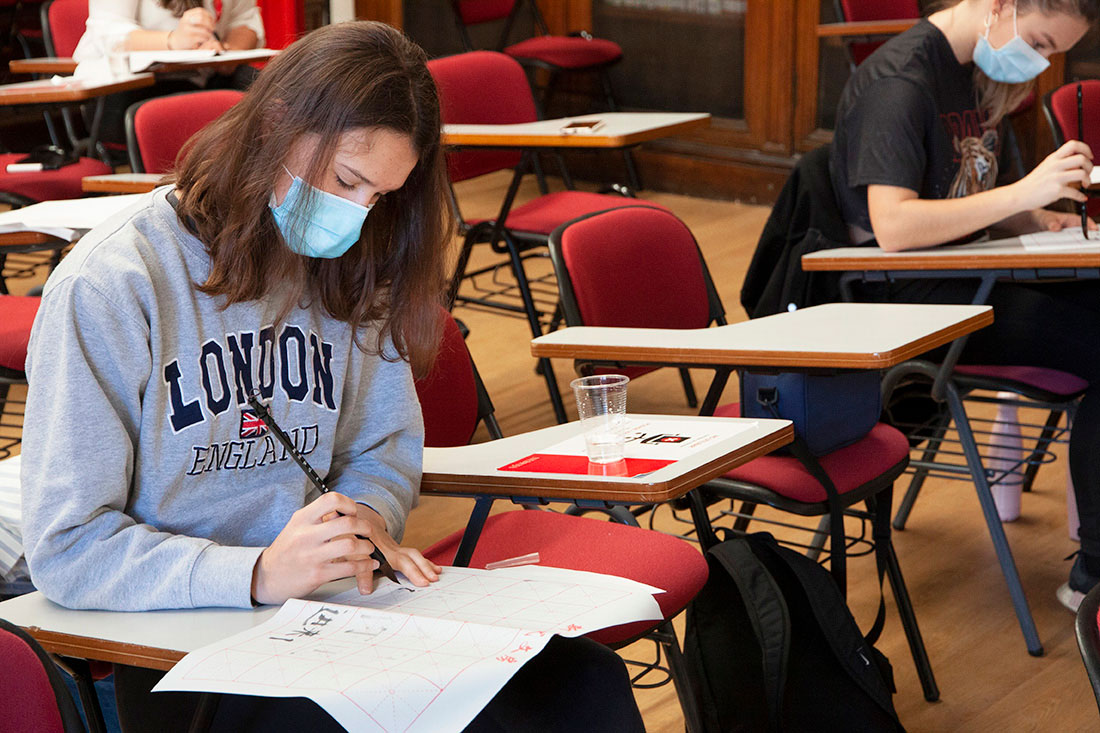
Click on the image to see more
Chinese culture and Nebrija's teaching cross paths
On May 10, the Nebrija Institute of Modern Languages (ILM) hosted a workshop organized and directed by the department's Chinese language teachers, Yanyan Xi (Camila) and Yuanyuan Shen (Jonah). One of the best ways to get closer to a culture is by learning its language, but this time the teachers wanted to get closer to this ancestral culture in a more plastic and playful way.
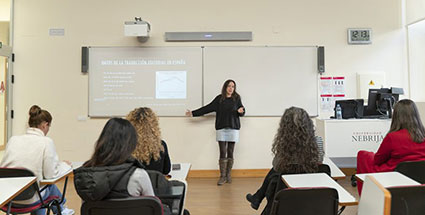
Differences between language and tongue
Lecture by linguist Itziar Laka at Nebrija University on the articulation of language, the differences with tongues and their processing by the users.
Based on the fact that language has a predetermined biological component with its own patterns of development and maturation, and without it being clear that syntax is represented and computed in the same circuits, Laka wonders how bilingual and multilingual speakers process human language. Together with her team, she has spent years researching how languages with very different grammars are processed, and what strategies bilingual speakers use when using them.
See articleLet’s Talk About Education
First chapter of the video podcast specialized in Education where research processes and their application in neuroscience and the educational sector are analyzed.
4th Nebrija International Congress on Linguistics Applied to Teaching Languages
The School of Languages and Education organizes this congress that serves as a meeting point for researchers and professors, both expert and new, to have the opportunity to share the results of their studies and didactic experiences.




